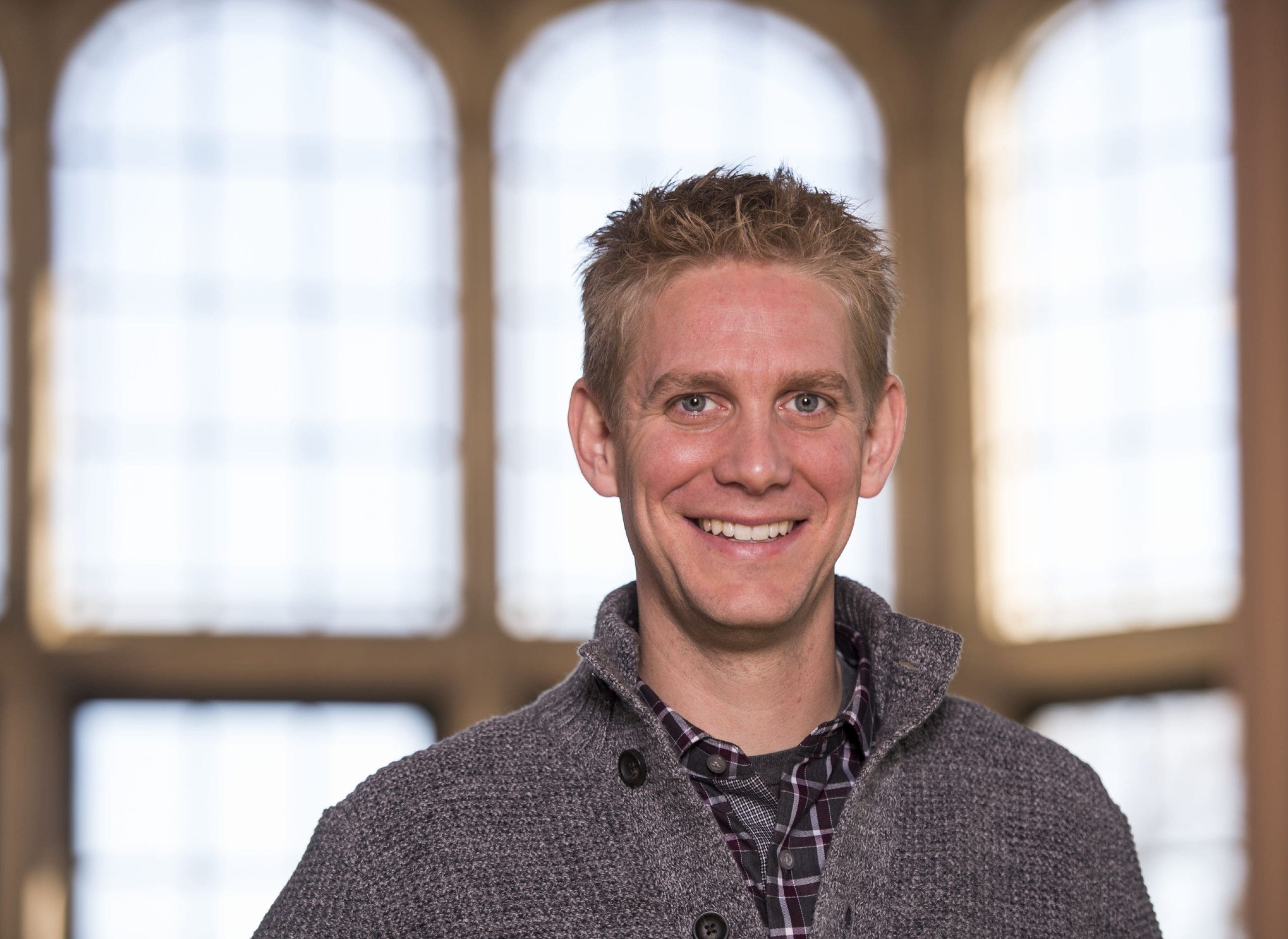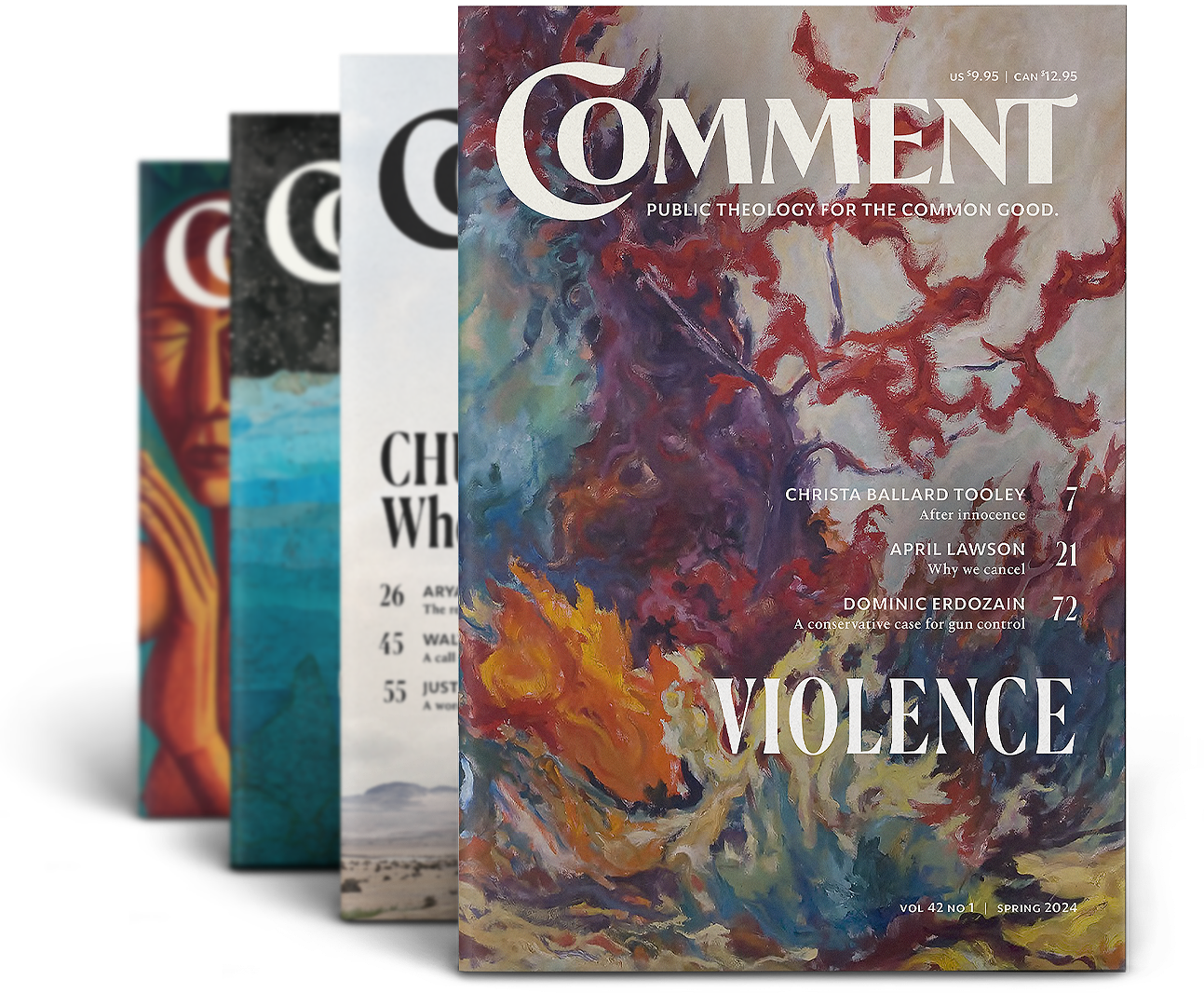When is it right to be afraid?
DIGITAL
$14
USD
Get unlimited online access.
- Early access to new issues
- Unlimited access to our entire archive
- Bookmark articles to your account
- Listen to select long-form articles
- Save your reading location
SUBSCRIBER
$24
USD
Get unlimited online access + 4 print issues per year.
- Receive our quarterly print magazine
- Early access to new issues
- Unlimited access to our entire archive
- Bookmark articles to your account
- Listen to select long-form articles
- Save your reading location
COMMENT PATRON
$500
USD/CAD
Support the people who make Comment possible.
- A full charitable tax receipt
- A complimentary Comment subscription
- Special updates from Anne Snyder
- Access to quarterly issue webinars
- Invitations to in-person Comment events
- Access to bonus podcast content
- Early access to new issues
- Unlimited access to our entire archive
- Listen to select long-form articles



